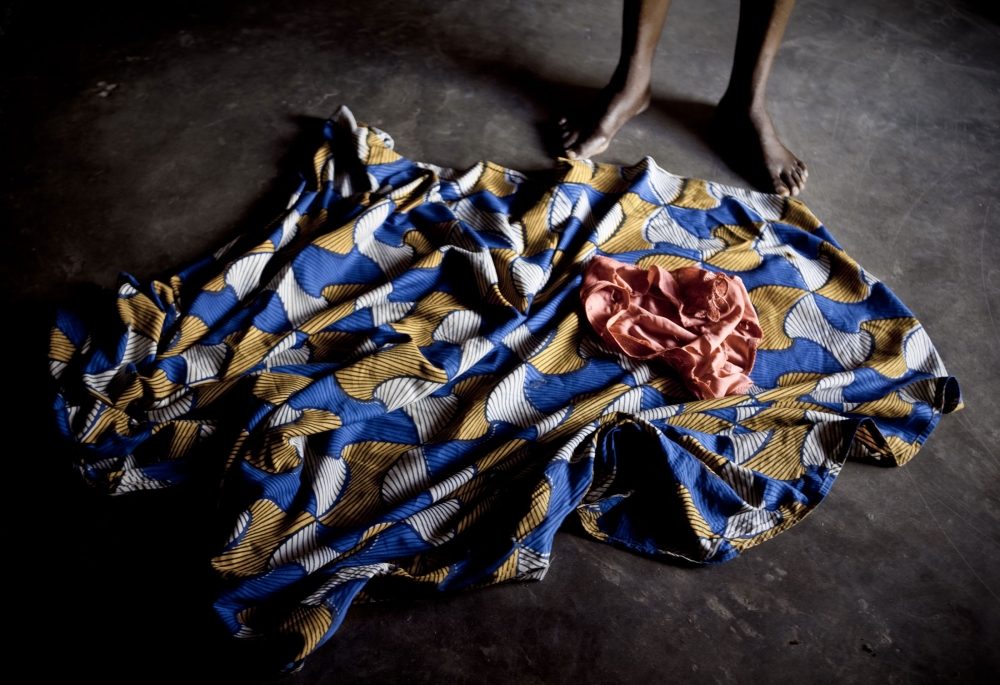
Urgent Need to Make Reparation a Reality for Survivors of Conflict-Related Sexual Violence
By Renata Politi, REDRESS’ Legal Advisor @PolitiRenata
During Nepal’s internal armed conflict, Purna Maya (not her real name) was abducted from her home, arbitrarily detained, beaten and subjected to multiple rapes by Nepalese soldiers in 2004. Similarly, Safia Ishaq Mohammed Issa, a Sudanese student, was abducted, beaten and gang-raped by Sudanese security officers following her participation in a non-violent pro-democracy demonstration in 2011.
While Purna Maya was tortured and raped in Nepal, and Safia in Sudan, their stories have many similarities and echo the experiences of countless survivors of conflict-related sexual violence (CRSV) globally, where the impact of sexual violence extends far beyond physical harm. Survivors of sexual violence often experience long-lasting harm, which include physical injuries, trauma, economic hardship, as well as stigma and social exclusion .
Given the seriousness of the harms inflicted on CRSV victims, reparation measures are often essential in order to enable survivors to rebuild their lives. Unfortunately, such measures are rarely granted, or their implementation is not enforced, a common experience for survivors like Purna Maya and Safia.
Despite international recognition of survivors’ right to prompt, adequate, and effective reparation, the reality remains stark: most face numerous obstacles and never receive the redress they deserve.
Legal barriers, such as short statutes of limitations for reporting sexual violence, inadequate laws and policies, and the absence of legal assistance, hinder survivors’ access to justice. Lack of political will, structural inequalities, insecurity, and corruption, exacerbated by ongoing conflicts, further obstruct survivors’ access to reparation. Additional challenges include bureaucratic administrative proceedings, deficient mechanisms for delivering reparation, and inadequate training of personnel to address sexual violence.
Even when reparation measures are granted, for example, by courts or human rights bodies, they are often not implemented, are insufficient, or are implemented long after the events, diminishing their effectiveness. Purna Maya’s and Safia’s journeys illustrate these systemic failings. Despite long legal battles, neither have ever received the reparation to which they are entitled to.
Purna Maya took her case to the UN Human Rights Committee. In 2017, the UN body of experts acknowledged the widespread use of sexual violence in Nepal’s armed conflict, recognised the rape suffered by Purna Maya as torture, and ordered Nepal to provide her with reparation, including compensation, rehabilitation, and measures to avoid the repetition of similar events.
Safia brought her case to the African Commission on Human and Peoples’ Rights, the principal human rights mechanism in Africa. In 2022, the African Commission recognised her gang-rape as torture and held Sudan responsible for failing to investigate, prosecute and punish those responsible, ordering several reparation measures, including compensation and legal and institutional reforms to tackle sexual violence in Sudan.
The lack of implementation of these decisions has a profound effect on survivors. Delayed or denied reparation perpetuates trauma and it can aggravate and compound the harm caused by CRSV, re-traumatising survivors. Beyond the harm to survivors, the lack of implementation can also erode trust in institutions, and foster a culture of impunity, perpetuating the cycle of gender-based violence.
During our work working with survivors of CRSV in different contexts such as Sudan, Uganda, Kenya, Nepal, Chad and Ukraine, REDRESS has witnessed many of the challenges faced by CRSV survivors. The findings of our upcoming report on the implementation of reparation for CRSV survivors, outlines some of the key challenges survivors face, and emphasise the urgent need for States to reinforce their efforts so survivors receive reparation in practice.
Our recent submission to the UN Special Rapporteur on Torture for her upcoming report on sexual torture, which will be presented to the UN Human Rights Council in June, illustrates how these challenges faced by survivors manifest in different contexts and identifies some priority areas for improvement. We hope these discussions will prompt States at last to take stronger steps to ensure that reparation becomes a tangible reality for CRSV survivors.
Photo credit: Gwenn-Dubourthoumieu/IRIN
